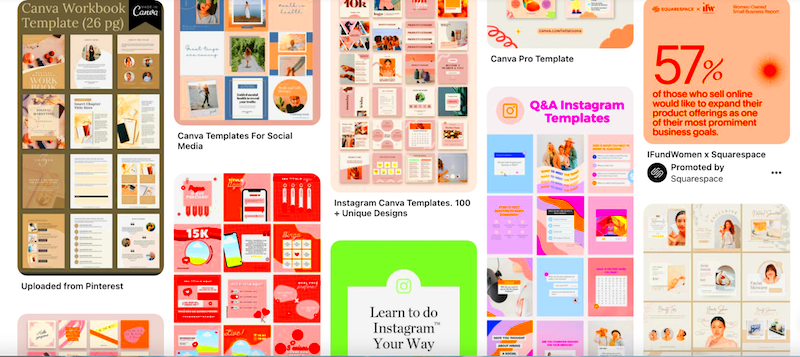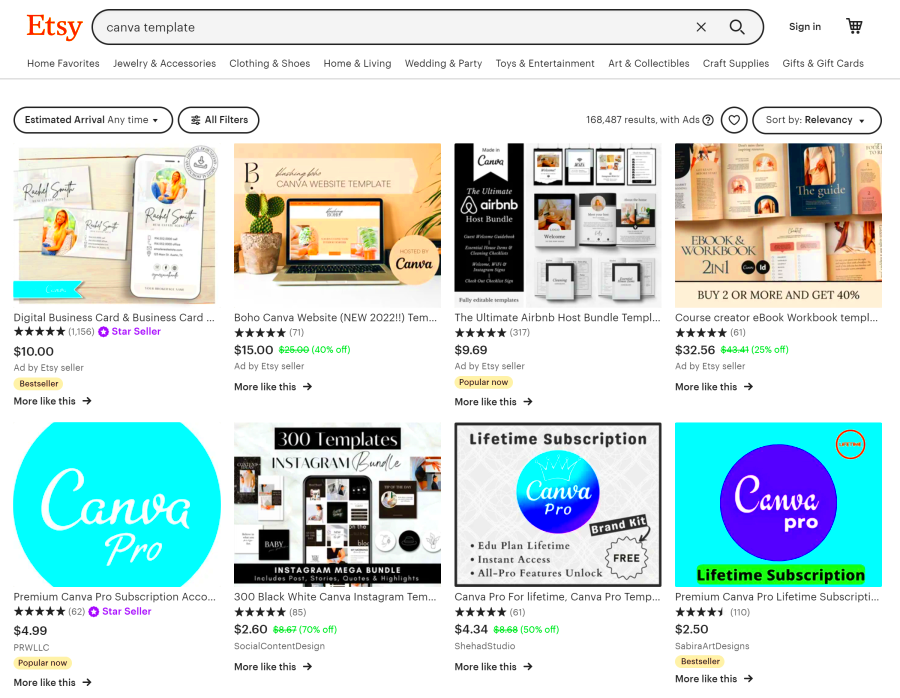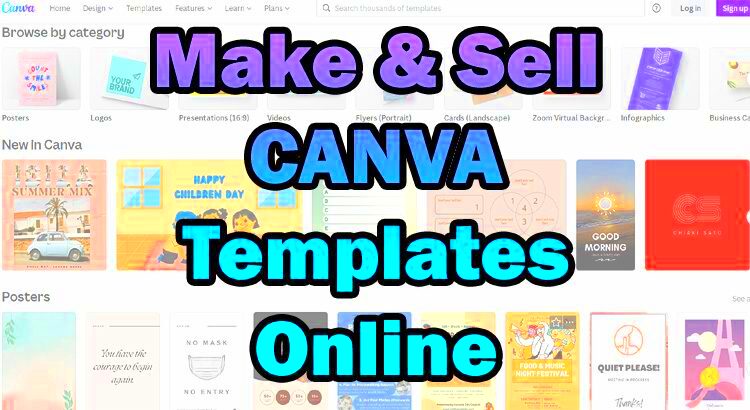If you’re diving into the world of graphic design or looking to start a side hustle, you might be wondering about using Canva templates. The big question is, “Can you edit Canva templates and sell them legally?” The short answer is, it depends. Understanding Canva’s licensing terms is crucial for navigating the legal landscape of design. Let’s break it down so you can make informed decisions and keep your creative endeavors above board.
Understanding Canva’s Licensing Terms

Canva offers a variety of licenses for both free and paid elements, and it’s essential to fully grasp these rules before you start editing and selling templates. Here’s a simple breakdown of what you need to know:
- Free Templates:
Canva provides a plethora of templates for free. The great news is you can edit these templates for personal use. However, when it comes to selling them, you’ll need to tread carefully. You cannot sell the design as-is or even claim it as your own.
- Pro Templates:
If you have a Canva Pro account, you have access to premium templates that come with different rights. While you can sell designs made from Pro templates, you cannot sell the template itself or pass it off as a standalone item.
- Elements and Stock Photos:
Buying stock images or graphics from Canva means you need to check the individual license for those assets. Some elements allow for commercial use, but others don’t. Always ensure the element’s licensing agreement allows for redistribution or sales.
- Custom Designs:
If you’ve created a design from scratch or used elements in a transformative way, you may have more freedom. Just ensure that your creation is unique enough not to infringe on any copyright.
In summary, while you can edit Canva templates, selling them legally requires a clear understanding of their licensing terms. Always do your due diligence and when in doubt, reach out to Canva’s support for clarification.
3. Types of Canva Templates Available

Canva is a treasure trove of customizable templates that cater to a diverse range of needs. Whether you’re launching a new business, creating social media posts, or putting together a presentation, Canva offers something for everyone. Here’s a closer look at the different types of templates you can find:
- Social Media Templates: These are designed specifically for platforms like Instagram, Facebook, LinkedIn, and Twitter. They come in various sizes and styles, making it easy to create eye-catching posts and stories.
- Presentation Templates: Perfect for professionals and students alike, these templates help you design stunning slides with minimal effort. You can choose from numerous themes, layouts, and color schemes.
- Infographic Templates: Data visualization is crucial in today’s world, and Canva’s infographic templates make it easy to convey complex information in an easy-to-understand manner.
- Marketing Materials: From flyers and brochures to business cards and posters, Canva provides a variety of marketing templates that will elevate your brand’s presence.
- Event Invitations: Planning a party, wedding, or corporate event? Canva has a selection of invitation templates that allow you to create beautiful designs that can be printed or shared digitally.
- Resume and CV Templates: Stand out in the job market with visually appealing resumes that showcase your skills and experiences effectively.
With these various types of templates at your disposal, the possibilities are endless! Whether you need a quick design or a more intricate layout, Canva makes it often enjoyable to create professional-looking materials that fit your needs.
4. Can You Edit Canva Templates?
Absolutely! One of the best features of Canva is its user-friendly editing capabilities, which allow you to customize templates to fit your specific style or branding. Here’s how the editing process works:
- Drag-and-Drop Functionality: The platform makes it incredibly easy to edit templates. You can simply drag elements around, resize, or remove them as needed.
- Change Colors and Fonts: You can personalize your template by changing colors or fonts to align with your brand identity. Just select the element and choose your desired options from the menu.
- Add Images or Icons: Need to include your logo or a specific graphic? You can upload your own images or choose from Canva’s vast library of free and premium assets.
- Text Customization: Easily modify or add text by clicking on the text box. You can adjust size, spacing, and alignment to make it just right.
However, it’s essential to understand the legalities around editing and selling these templates. When editing Canva templates, you are often allowed to modify them for personal or commercial use, but selling them as your own original work without proper licensing can lead to issues. So, while you can definitely edit them, always make sure you have the right to use and redistribute the resulting product! It’s crucial to respect the platform’s guidelines to ensure you’re operating within the legal boundaries.
Legal Considerations for Selling Edited Templates
When it comes to selling edited Canva templates, understanding the legal landscape is crucial. Canva has specific licensing agreements that dictate how you can use their templates. Here are some key points to keep in mind:
- Canva’s License Agreement: Before you edit any template, it’s essential to read Canva’s licensing terms. They offer a Free and a Pro License. The Pro License generally provides more flexibility for commercial use.
- Attribution Requirements: Depending on the template’s original creator, there may be requirements for attribution to the designer. Failing to credit the original artist can lead to legal trouble.
- Modification Limitations: While editing is allowed, there might be restrictions on how much you can alter the original design. Ensure that your edits make the templates unique enough to stand apart from the original.
- Original Elements: If you incorporate your own graphics or images, make sure that they are properly licensed as well. Using stock images without permission can lead to copyright claims.
- Resale Viability: Some templates might be prohibited from resale, especially if they are designated as personal use only. Check the terms for each template you’re considering selling.
Before diving into selling edited templates, consider consulting with a legal expert. The investment could save you from potential headaches down the line. Remember, ignorance of the law is not an excuse, so being informed is your best defense!
How to Effectively Sell Edited Canva Templates
Ready to turn your creativity into revenue? Selling edited Canva templates can be a rewarding endeavor, but you have to approach it strategically. Here are some effective tips to help you sell your designs successfully:
- Establish Your Brand: Clearly define your niche and target audience. Are you focusing on wedding invitations, social media posts, or business presentations? Create a brand that resonates with your audience.
- Optimize Your Listings: Use relevant keywords in your product titles and descriptions to make them easily searchable. High-quality images showcasing your templates in use can grab attention.
- Leverage Social Media: Utilize platforms like Instagram, Pinterest, and Facebook to showcase your templates. Create engaging posts with before-and-after images to highlight your edits.
- Offer Bundles: Consider creating template bundles that provide added value. This can encourage customers to buy more at a better price and increase your sales.
- Use E-commerce Platforms: Platforms like Etsy, Creative Market, or your own website can be great venues for selling your templates. Make sure to comply with their guidelines.
Finally, don’t underestimate the power of customer feedback. Encourage your buyers to leave reviews, and use that feedback to improve your future designs and customer service. With passion and the right approach, you can build a successful business selling edited Canva templates!
Best Practices for Customizing Canva Templates
So, you’re interested in customizing Canva templates? That’s fantastic! Canva is such a versatile tool, and customizing templates can really set your work apart. Here are some of the best practices to keep in mind while you tweak those templates:
- Understand the Template’s Purpose: Before diving in, take a moment to understand what the original template was meant for. Ask yourself questions like, “Who is the target audience?” and “What is the core message?” This will guide your changes and help you create something original yet relevant.
- Keep It Consistent: Consistency is key in design. Maintain the same fonts, colors, and layout style throughout your customization. This helps in building a cohesive look that elevates your design.
- Play with Colors: Don’t be afraid to change the color palette! Choose colors that represent your brand or the message you want to convey. Use tools like Adobe Color to find harmonious color schemes.
- Use High-Quality Images: Replace any stock images or placeholders with high-resolution images. The quality of the visuals often defines the overall quality of the design. Websites like Unsplash or Pexels offer free high-res images that can serve your needs.
- Add Your Personal Touch: Think of how you can make the template your own! Add custom graphics, illustrations, or even your own typography to give the design a unique flair.
- Test Your Design: Once you’re done, put your design through a test. Show it to friends or colleagues for feedback. They might catch aspects you didn’t notice!
Remember, customization is about making something distinctive while respecting the original design. Happy designing!
Conclusion
To wrap things up, customizing Canva templates is an exciting way to express your creativity while saving time on design work. It’s also a marketable skill! However, navigating the legal aspects of selling customized templates can feel daunting. Here’s the good news: as long as you’re understanding the licensing agreements and implementing some of the best practices we just discussed, you’re on the right path!
Before you sell your customized templates, always make sure to:
- Review the Canva terms of use and licensing agreements to avoid any copyright issues.
- Consider adding value through customization so your product stands out and feels unique to potential buyers.
- Stay updated with changes in Canva’s policies to keep your business compliant.
In conclusion, yes, you can edit Canva templates and sell them legally, provided you adhere to the legal guidelines. By following best practices for customization, not only will you create appealing designs, but you’ll also unleash your potential as a creator in the growing design marketplace. So go ahead and start designing beautiful, valuable templates that others will love!



